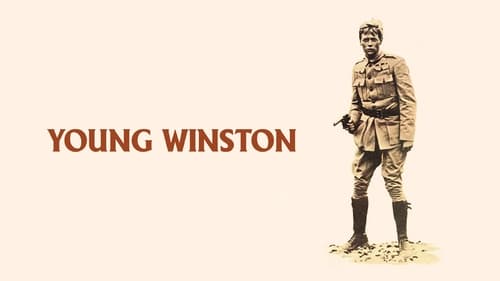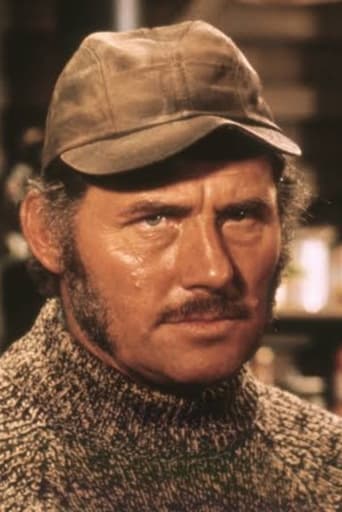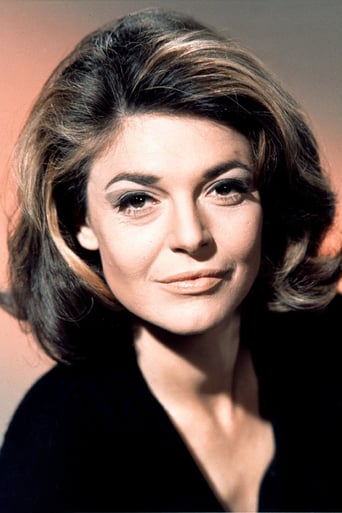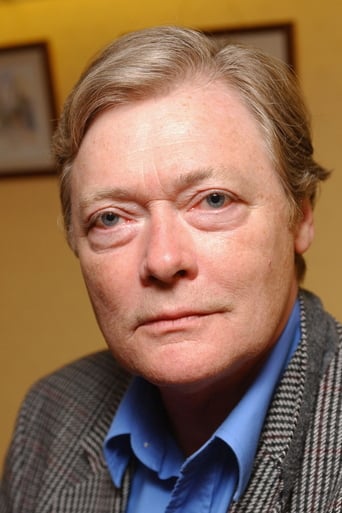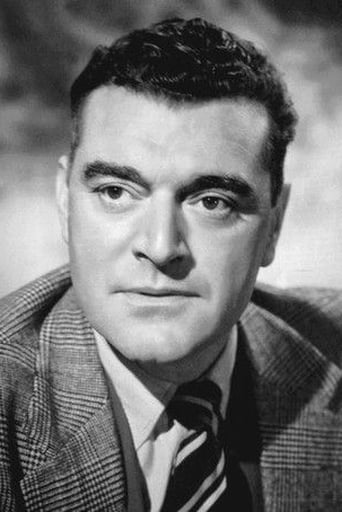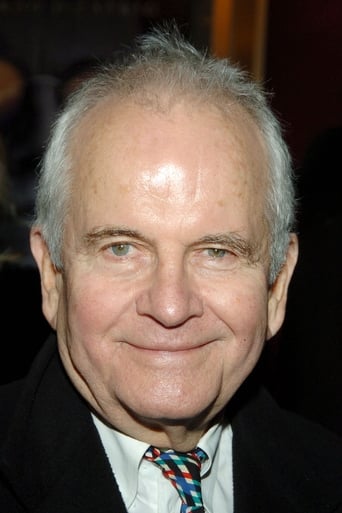Fairaher
The film makes a home in your brain and the only cure is to see it again.
Voxitype
Good films always raise compelling questions, whether the format is fiction or documentary fact.
Bob
This is one of the best movies I’ve seen in a very long time. You have to go and see this on the big screen.
bsmith5552
"Young Winston" was an ambitious effort from Producer Carl Foreman and Director Richard Attenborough to chronicle the early life of famed politician Winston Churchill. One always thinks of Churchill as the rotund cherubic cigar smoking politician who ultimately saved the world from Nazi domination. What we get is an unexpected adventuresome war correspondent who makes a name for himself on the battlefield.Churchill's life is chronicled from the age of seven to his first election to parliament at age 27. The young Churchill is distanced from his beloved father Lord Randolph Churchill (Robert Shaw) who is a member of parliament at odds with his Prime Minister Lord Salisbury (Laurence Naismith). We follow his schooling at an expensive prep school where he is brutally caned by his professor. His American mother Lady Churchill (Anne Bancroft) also has little time for the young boy at this juncture.When he is grown, Winston manages to get assigned to the India frontier as a war correspondent. There he is cited for an act of bravery. He begins to receive the recognition that will help him in his ultimate goal of being elected to parliament. His first try ends in defeat.His father is taken ill and dies a lonely painful death at the age of 46. This has a profound effect on both Winston and his mother. Later, Winston is posted to South Africa during the Boer War where he distinguishes himself in battle but is captured. His daring escape wins him accolades in his homeland. His second try at parliament is successful and the rest as they say, is history.The cast is supplemented by a number of notables from the British Hall of Fame. Included in small cameos are Jack Hawkins, Anthony Hopkins, Edward Woodward, John Mills, Ian Holm, Colin Blakely, Jane Seymour and others.Churchill's legendary sense of humor is absent here but we do see him light up his famous cigar at the end though.
CitizenCaine
Young Winston is perhaps one of the forgotten films of the early 1970's, and there may be no better explanation for it besides the fact Hollywood pumped out a plethora of artistically successful productions as well as films successful at the box office. Richard Attenborough directs another all-star British cast, as he did in his first film, along with a main actress of the day to play Churchill's neglectful mother: Anne Bancroft. The film stars Robert Shaw as Churchill's impossibly over-bearing father Lord Randolph, whose bout with syphilis led to his slow decline. Simon Ward plays the young Churchill from his late teens into his mid 20's as an equally adventurous, arrogant, brash, and ultimately courageous young man coming into his own after failing to meet his father's ridiculous standards for achievement and success.The film is slow-moving in the first half with the not-too-original background of a young boy mistreated by parents, aimlessly searching for direction in life. Writer Carl Foreman's Oscar-nominated screenplay heats up in the second half with Churchill's adventurous exploits as a lieutenant and a journalist. Attenborough is best at panning the majestic landscapes and filming action scenes peppered with intense emotion, as during Winston's escape from Pretoria. Ward is the very embodiment of a young Churchill, and it's his voice imitating the famous elder Churchill's that narrates the film. The film benefits immensely from its strong British cast, including Jack Hawkins, Ian Holm, Anthony Hopkins, Patrick Magee, Edward Woodward, and John Mills. Look for an appearance by Jane Seymour and Nigel Hawthorne in his film debut. The film was Oscar-nominated for its Art Direction and Set Decoration as well as its costumes. The film climaxes somewhat unexpectedly when Ward gives a speech in Parliament, echoing a battle Lord Randolph fought years before. It's a deliberately paced film telling a story about one of the twentieth century's most important figures. *** of 4 stars.
blanche-2
Simon Ward is "Young Winston" in this 1972 film, directed by Richard Attenborough with a all-star cast including Anne Bancroft, Robert Shaw, Jack Hawkins, John Mills, Pat Heywood, Ian Holm, Patrick Magee, Anthony Hopkins, Edward Woodward, Laurence Naismith, Robert Hardy, and Colin Blakely.The film is based on Churchill's book about his early life, which is far superior to the film because it encompasses so much more detail. We see Churchill in his early life going off to a series of schools, an original thinker who could do well in school if he put his mind to it. He adores his parents from a distance; his father (Shaw), a controversial figure in Parliament, dies a slow death from syphilis. His mother, Jenny (Bancroft), a great beauty, has a series of lovers, which is not covered here. Not considered a great scholar, rather than following his father into political life, he seems destined for a military career. His soldiering leaves something to be desired, though he acquits himself well when, as a journalist, he is caught in battle. He writes books about the war campaigns and becomes known - and sometimes not liked. Churchill does enter politics at a young age and loses. Undaunted, he keeps going, finally entering Parliament.Young Winston captures the different eras beautifully and is absolutely huge in its scope. The battle scenes are tremendous, and there are plenty of them for lovers of adventure films. The film was made in an era of the big, sweeping epic, and it doesn't disappoint.It's also helped by the fabulous performances. We have all seen the heavy, bald Winston Churchill, but of course he wasn't born that way. Simon Ward is the absolute picture of the young Churchill and does a brilliant job portraying a hard-working, ambitious, proud and sometimes haughty youth. Robert Shaw is wonderful as Lord Randolph, showing a powerful man and his slow decline. Anne Bancroft's performance may have raised a question or two. She speaks with a British accent, yet Jenny was an American, from Brooklyn, no less. Her accent is actually an informed choice - and who could expect less from such a stunning actress. Firstly, as the daughter of a millionaire, she attended the best schools, where upper class people were taught to speak with a British affectation; secondly, having lived in England, she naturally took on a stronger version of the accent. Bancroft gives Jenny the vivaciousness, intelligence and charm that the actual Jenny possessed.Some of the greatest British actors of the day have small roles, truly elevating the film. Notable is John Mills as the irascible General Kitchener, who emphatically does not want Churchill serving under him. Anthony Hopkins pops up as David Lloyd George; Patrick Magee as General Blood. Jane Seymour has an early small role as Pamela Plowden.I'm not sure audiences have the patience any longer to sit through a sometimes slow, historical epic like this that isn't riddled with special effects. I highly recommend reading the book "My Early Life" and then seeing the film for a more complete look at one of the most important figures of the 20th Century.
george karpouzas
When I watched this picture on DVD I had in hand The late Roy Jenkins massive biographical study of Winston Churchill and therefore I could compare the action and story line of the with a written source.Pivotal events of young Churchill's life were described both in book and movie as for example, his difficulties as a young pupil as well as his faultless recitation of Macauley's Ruins of Ancient Rome, when in Harrow. His problematic relationship with his father was also portrayed convincingly.Afterwards his journalistic/military adventures, as his participation in a punitive expedition and mainly his escape from the Boers which catapulted him to world fame. I found that the movie gave the established version of events as well as providing memorable quotes which may be a mark of authenticity or a symptom of cliché depending on personal viewpoint. For someone who is not British the evocation of the British Imperial establishment in the movie has an air of historical accuracy as far as manners and ways of life are concerned, the veracity of which I can not check since neither me nor my ancestors had experience of that environment. The movie is picturesque and has aura of adventure when describing the various imperial fronts that it's dashing hero traversed in his young adventurous days. It also emphasizes the importance that social connections played in British society for the advancement of a young aspiring politician. The movie shows the development of a human, if extraordinary, character in the manner of a novel, that Germans call Bildungsroman, that is a story about the evolution and crystallization of a human character. I would compare it in cinematic terms with Abel Ganz's Napoleon, an other earlier movie that explores the formative years of an other Titan of European history, Bonaparte. Young Winston of course relates to a smaller part of it's subject's life in the sense that it ends with his break into politics and also covers barely 4 chapters in Roy Jenkinks massive book from a total of over fifty such devoted to the great man. Clearly it strives to portray solely the early beginning but that it does so very ably. P.S. After I had written the above part of the review I read Churchill's own "My Early Life" on which the movie is based according to the titles of the beginning. I have to admit that it follows "My Early Life" in the content of the events described although not in the sequence since there exist numerous flashbacks. The important thing to point out is that having as a previous written source Roy Jenkins' biographical study I had a sympathetic although supposedly neutral source, while "My Early Life" is as all autobiographies a unabashedly self-justifying piece of writing and that quality is reproduced in the movie. One has to note that the filmic text follows the written text and many narrations in the movie supposedly made by Churchill speaking as an old man, are verbatim reproductions of the text of "My Early Life" which serves as inspiration. Truly reading the book and watching the film is an experience that marries two different forms of art. Also the content of the movie, not only the verbal narrations follows the book and memorable incidents, such as the report to General Kitchener and the presence of the wife of Mr. Dewsnap in the Oldham election meeting stand out. One of course has to observe that everything had been exceptional about Churchill's early life, including his boyish naiveté before the master of his first school, to exclaim that he never speaks to a table as Latin grammar would have him do-an incident described in the book where a small board containing the first declension of the noun mensa=table in Latin is contained. Clearly it offers a lot of insight to it's subject.

